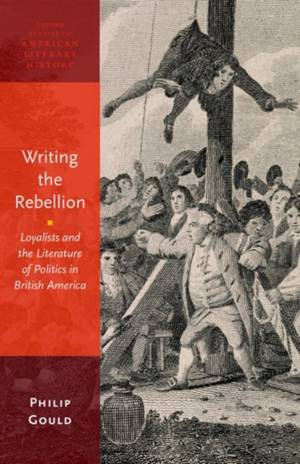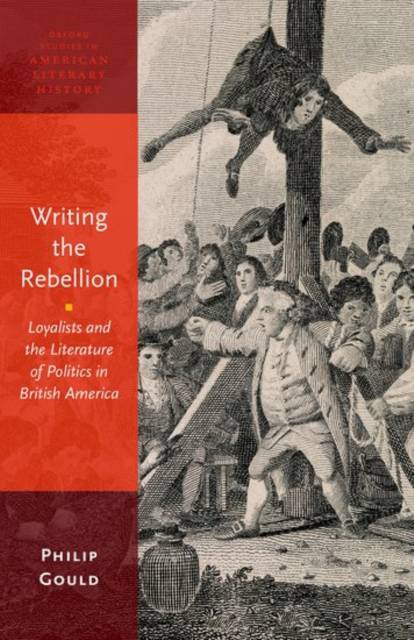
- Retrait gratuit dans votre magasin Club
- 7.000.000 titres dans notre catalogue
- Payer en toute sécurité
- Toujours un magasin près de chez vous
- Retrait gratuit dans votre magasin Club
- 7.000.0000 titres dans notre catalogue
- Payer en toute sécurité
- Toujours un magasin près de chez vous
64,45 €
+ 128 points
Description
Writing the Rebellion presents a cultural history of loyalist writing in early America. There has been a spate of related works, but Philip Gould's narrative offers a completely different view of the loyalist/patriot contentions than appears in any of these accounts. By focusing on the literary projections of the loyalist cause, Gould dissolves the old legend that loyalists were more British than American, and patriots the embodiment of a new sensibility drawn from their American situation and upbringing. He shows that both sides claimed to be heritors of British civil discourse, Old World learning, and the genius of English culture. The first half of Writing the Rebellion deals with the ways "political disputation spilled into arguments about style, form, and aesthetics, as though these subjects could secure (or ruin) the very status of political authorship." Chapters in this section illustrate how loyalists attack patriot rhetoric by invoking British satires of an inflated Whig style by Alexander Pope and Jonathan Swift. Another chapter turns to Loyalist critiques of Congressional language and especially the Continental Association, which was responsible for radical and increasingly violent measures against the Loyalists. The second half of Gould's book looks at satiric adaptations of the ancient ballad tradition to see what happens when patriots and loyalists interpret and adapt the same text (or texts) for distinctive yet related purposes. The last two chapters look at the Loyalist response to Thomas Paine's Common Sense and the ways the concept of the author became defined in early America. Throughout the manuscript, Gould acknowledges the purchase English literary culture continued to have in revolutionary America, even among revolutionaries.
Spécifications
Parties prenantes
- Auteur(s) :
- Editeur:
Contenu
- Nombre de pages :
- 232
- Langue:
- Anglais
- Collection :
Caractéristiques
- EAN:
- 9780190494469
- Date de parution :
- 15-04-16
- Format:
- Livre broché
- Format numérique:
- Trade paperback (VS)
- Dimensions :
- 155 mm x 231 mm
- Poids :
- 340 g

Les avis
Nous publions uniquement les avis qui respectent les conditions requises. Consultez nos conditions pour les avis.






